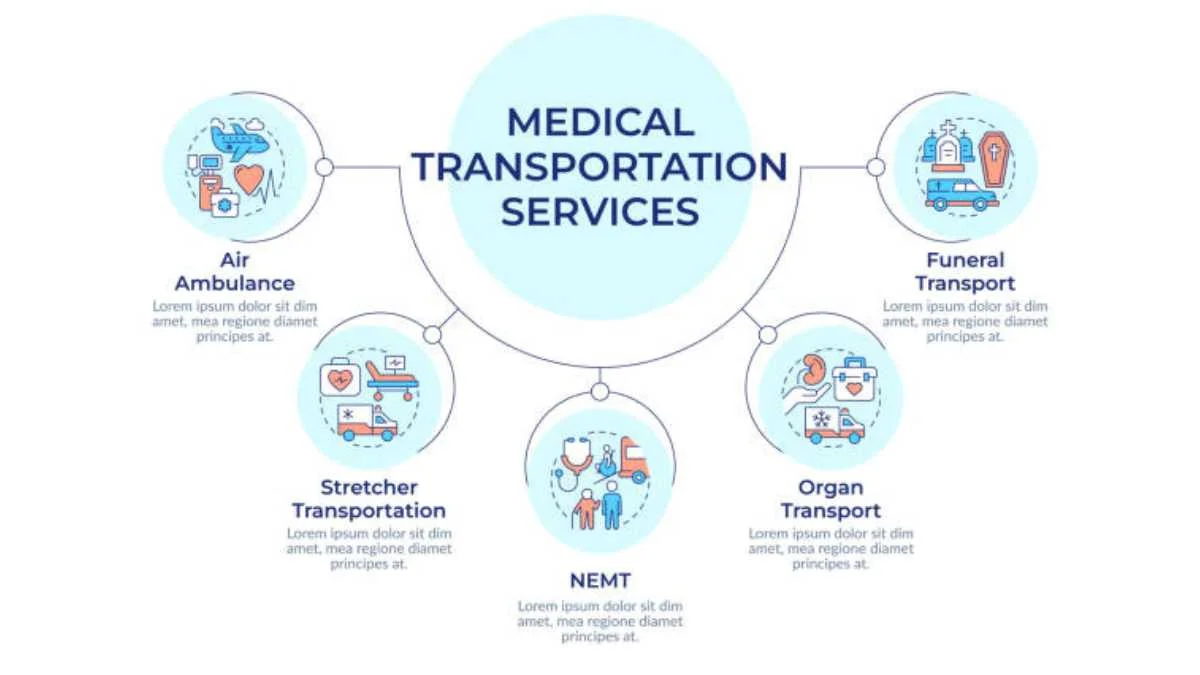HEALTH AND FITNESS
Why Timeliness Is Crucial in Long Distance Medical Transport Services

In the realm of healthcare, the importance of timely medical transport cannot be overstated, especially when patients require movement over long distances. Long-distance medical transport services serve as a vital link connecting patients to the medical care they need, often bridging the gap between remote locations and specialized treatment centers. The timely execution of these transport services significantly influences patient outcomes, recovery times, and overall healthcare efficiency. Delays or mismanagement can lead to worsening medical conditions, increased stress for patients and their families, and higher healthcare costs. We will examine the reasons why timeliness plays a crucial role in long-distance medical transport and how it influences the quality of care delivered during critical moments.
Table of Contents
The Critical Role of Timeliness in Long-Distance Medical Transport
1. Ensuring Patient Stability and Minimizing Risks
Timely transport is essential in maintaining the stability of patients requiring transfer. Medical conditions that require long-distance transport are often acute or complex, requiring careful monitoring and intervention. Delays can exacerbate the patient’s condition, causing complications that might have been avoidable with prompt action. For example, patients suffering from cardiac events, strokes, or severe trauma benefit greatly from swift transfer to appropriate healthcare facilities where Medic Trans ensures access to reliable and efficient medical transport services that connect patients to the care they need.
Time-sensitive interventions such as thrombolytic therapy or surgery depend heavily on the patient reaching treatment centers without unnecessary hold-ups. Consequently, transport delays increase the risks of deterioration, extended hospital stays, or even fatal outcomes. The ability of medical transport services to respond rapidly and maintain steady care en route ensures that patients arrive in the best possible condition for subsequent treatment.
2. Facilitating Seamless Continuity of Care
Long-distance medical transport often involves coordinating care between multiple providers and healthcare systems. Timeliness ensures that handoffs between the transport team and receiving medical staff occur smoothly and without disruption. When a patient arrives within the expected timeframe, receiving teams can prepare the necessary resources and personnel to continue treatment immediately. Delays, however, create scheduling challenges and can result in lost treatment windows or gaps in monitoring. This can impact on the patient’s overall treatment plan, resulting in delays in diagnosis, therapy initiation, or rehabilitation.
Additionally, maintaining timely transportation ensures that communication between teams is effective, allowing critical medical information to be transferred accurately and promptly. This continuity enhances patient safety, promotes better clinical decision-making, and supports positive health outcomes.
3. Reducing Patient and Family Stress
Long-distance medical transport is not only a logistical challenge but also an emotionally charged experience for patients and their loved ones. The uncertainty and anxiety associated with transfers can be overwhelming. When transport services operate efficiently and adhere to expected schedules, it alleviates some of the emotional burdens faced by families. Knowing that a loved one will reach the destination hospital on time allows families to prepare emotionally and practically for the next stages of care. Conversely, delays or lack of communication can heighten stress levels, causing confusion and frustration. Timely transport services foster trust and reassurance, emphasizing a commitment to patient-centered care. This emotional stability is crucial for both patients and families as they navigate difficult health circumstances.
4. Optimizing Healthcare Resources and Reducing Costs
Efficient long-distance medical transport helps optimize the use of healthcare resources by reducing unnecessary wait times and hospital bed occupancy. Transport delays can cause a backlog of cases at sending facilities, resulting in prolonged stays that strain resources. Additionally, when patients fail to arrive on time at receiving centers, planned procedures and treatments may be postponed, which can impact other scheduled patients and the overall workflow.
Timeliness supports better scheduling and resource allocation, which in turn reduces healthcare costs. Additionally, transport delays increase the likelihood of complications or deterioration, which may require more intensive and costly interventions. By ensuring that patients reach their destinations promptly, medical transport services contribute to a more streamlined healthcare system that benefits both providers and patients financially.
5. Adapting to Urgent and Changing Medical Needs
Medical conditions can be unpredictable, and long-distance transport services must be capable of responding rapidly when an urgency arises. Timeliness allows transport providers to adapt quickly to evolving patient conditions or unexpected medical emergencies during transit. For example, if a patient’s condition worsens suddenly, having a timely and responsive transport setup means that emergency interventions or rerouting to nearer facilities can be executed without delay. The ability to act promptly can prevent complications and stabilize patients before arrival.
Moreover, meeting time-sensitive transfer windows for treatments such as organ transplants or specialized surgeries relies heavily on transport that adheres to strict schedules. Timeliness in this context is crucial for saving lives and ensuring that patients receive the care they need when it matters most.
Timeliness is a cornerstone of long-distance medical transport services, affecting nearly every aspect of patient care and healthcare efficiency. Prompt transfers ensure patient stability, enable smooth continuity of care, alleviate emotional stress, optimize resource utilization, and facilitate rapid adaptation to medical emergencies. In the high-stakes world of healthcare, where minutes can significantly impact outcomes, maintaining strict adherence to timelines is not only beneficial—it is essential. Transport providers who recognize and act on the importance of timeliness contribute significantly to better health results and a more effective healthcare system. Ultimately, timely long-distance medical transport reflects a commitment to patient well-being and a proactive approach to managing complex health challenges.
-

 GENERAL8 months ago
GENERAL8 months agoChristofle – For Those Who Dream of Family Heirloom Silver
-

 SPORTS10 months ago
SPORTS10 months agoDiscover the World of Football with Streameast: Watch Your Favorite Leagues and Tournaments
-

 GENERAL2 months ago
GENERAL2 months agoUncovering the World of кинокрадко: The Dark Side of Film Piracy
-

 GENERAL5 months ago
GENERAL5 months agoATFBooru: Anime, Gaming, and Subculture Imageboard




























